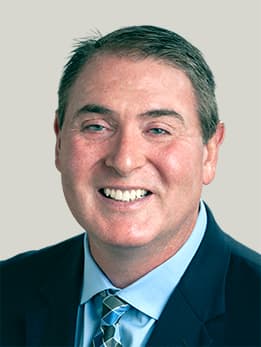What is congenital heart disease, and what do adult patients need know about their care?

Some of the country’s top congenital heart disease experts and researchers have teamed up to form the University of Chicago Medicine’s new Adults with Congenital Heart Disease Program.
The program is part of the Chicagoland Children’s Health Alliance (CCHA), a unique Chicago-area collaboration that merges resources and expertise from UChicago Medicine, Advocate Children’s Hospital and NorthShore University Health System.
The Adults with Congenital Heart Disease Program, which opened May 15, 2020, is an important bridge between pediatric and adult care, allowing patients to receive expert treatment from infancy through adulthood. The goal is to provide better outcomes, make care more cost effective, and advance the field through research, education and treatments.
UChicago Medicine’s Adults with Congenital Heart Disease Program will be a national leader both in treatment and research. It also will be “the teacher of the teachers,” educating doctors in this specialty and potentially rewriting how the country provides care for adults born with heart disease.
What is congenital heart disease (CHD)?
It’s the most common birth defect in the country, affecting one out of every 100 children. Most commonly, it’s characterized by the abnormal formation of the chambers of the heart, valves, or the blood vessels entering or leaving the heart.
Why is there more attention now on congenital heart disease treatment for adults?
Forty years ago, only 10% of children with CHD survived to adulthood. Now, thanks to advances in medicine, 90% will survive. That means there are more than 1 million adults living with congenital heart disease in the U.S. Unfortunately, the number of specialists trained to take care of this growing group of patients is few. While most patients do well, many remain at risk for late complications and need lifelong follow-up and care. With regular follow-up, the goal is to identify and treat problems early, before they become serious and life threatening.
Why do adult congenital heart disease patients stop going to the doctor?
Most children with congenital heart disease get regular follow-up as children and adolescents. When they transition from being a dependent, pediatric patient to an independent adult, there is increased risk that they stop seeking regular cardiac care. We have developed a transition program that prepares them to manage their CDH on their own. While still under the supervision of their parents, the program teaches them about their condition, the importance of follow-up, the risk for late complications, their medications, and, of course, pregnancy, sex and drugs.
What kinds of complications can adults with congenital heart disease have?
Adults with congenital heart disease are at risk for multiple different late complications. These include abnormal heart rhythms (arrhythmias), both fast and slow; heart failure; leaky valves; tight valves; and blood vessel issues. Some will need repeat surgical or catheter-based interventions, and a few may even need a heart transplant. At the same time, women with congenital heart disease can be at increased risk for complications during pregnancy and need close monitoring to make sure the mom and baby are healthy. Patients with congenital heart disease may also have issues with their kidneys, liver and lungs; varicose veins; or neurocognitive issues such as difficulty with executive function, math and reading skills. Adult congenital heart disease programs are designed to address all of these needs.
Why go to an adult congenital heart disease specialist, rather than just a cardiologist?
As more and more children with congenital heart disease survive to adulthood, we continue to define different late complications in this growing population. Unfortunately, adult cardiologists receive less than one month of training in caring for patients with congenital heart disease. Similarly, pediatric cardiologists, while well-versed in congenital heart disease, lack training in common adult issues, such as pregnancy, hypertension, coronary artery disease and obstructive sleep apnea. The field of adult congenital heart disease bridges this knowledge gap between pediatric cardiology and adult cardiovascular medicine.
Are any interesting, new treatments on the horizon for congenital heart disease?
Yes. We’re doing a lot of research, with multiple clinical trials being launched. We work closely with our heart transplant and heart failure colleagues, and we’re one of the key sites for the Adult Alliance for Research in Congenital Cardiology, the largest multicenter research group dedicated to research on adults with congenital heart disease. I am one of the founding members and on the board. We’ll be enrolling patients in future trials on topics like pulmonary hypertension, Eisenmenger syndrome, COVID-19 complications, liver dysfunction in patients with single ventricles and Fontan physiology, and using the medication Entresto to treat heart failure. We’re also exploring some new minimally invasive techniques to avoid future surgeries and have better outcomes.

Michael Earing, MD
Learn more about Dr. EaringCongenital Heart Disease in Adults
At the University of Chicago Medicine, we understand that adults with congenital heart disease require care that cannot be delivered by adult or pediatric cardiologists alone. In response to this need, we created the UChicago Medicine's Adults with Congenital Heart Disease Program.
Read about our congenital heart disease expertise